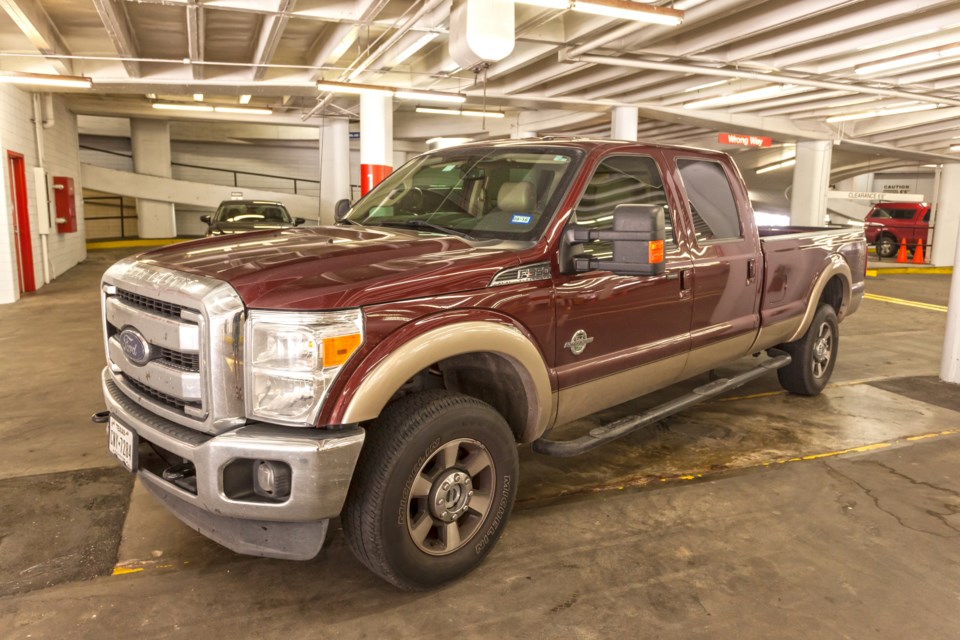With key-less entry, GPS and mobile apps, vehicles are getting smarter and smarter — and auto thieves are keeping up, according to a new report by the Insurance Bureau of Canada (IBC).
Sophisticated thieves are using technology to “bypass security systems,” IBC, which represents Canada’s private home, auto and business insurers, warned in a press release on Tuesday.
Auto theft these days is less and less about stealing keys and manual hot-wiring and increasingly about intercepting the signal between your vehicle and your entry fob, said IBC’s Vanessa Barrasa. As long that the two are in close proximity, thieves can capture the signal, she added.
That may explain why, despite ever more sophisticated technology, auto theft has held remarkably constant over the past few years. The IBC estimates thieves steal a vehicle every six minutes in Canada, something that collectively costs owners close to $1 billion every year, with insurers paying out around half that to fix or replace the stolen trucks, SUVs and cars.
As for the top 10 stolen vehicles in Canada, here’s the list from IBC:
1. Ford 350SD AWD 2007
2. Ford 350SD AWD 2006
3. Ford 350SD AWD 2005
4. Ford 350SD AWD 2004
5. Ford 250SD AWD 2006
6. Ford 350SD AWD 2003
7. Lexus RX350/RX350L/RX450h/RX450hL 4DR AWD 2018
8. Ford F250 SD 4WD 2005
9. Ford F350 SD 4AWD 2002
10. Honda Civic Si 2DR Coupe 1998
What’s so special about the Ford 350?
While the list is dominated by the popular Ford pickup truck, that’s hardly an indication that Ford 350 owners are more likely to suffer theft, Barrasa said. Rather, the data is a reflection of “what’s available” for thieves to steal.
The truck is very common in populous provinces like Alberta, which weighs heavily in the national data, she added.
Still, pick-up trucks in general, as well as some SUVs, are being shipped for resale overseas, which is part of a larger organized crime problem, Barrasa said.
Global News reported in 2018 that organized crime was behind a surge in Canadian vehicle thefts, with some provinces, such as Ontario, seeing double-digit increases in theft even as the national average remained roughly steady.
Organized auto theft rings are involved in international trade-based money laundering and raising money for drug-trafficking and terrorism, the IBC told Global News. Transnational gangs are even sending SUVs stolen in Canada to carry out terrorist bombings in the Middle East.
Still, owners of small, less expensive vehicles can’t rest easy either, as thieves also may target vehicles in order to steal parts or take them on a joyride, according to Barrasa.
“These are thieves: they’re picky, but they’re not too picky.”
How to protect your vehicle
Some of the steps Canadians can take to reduce the risk of theft are just commonsense precautions. For example, leaving your vehicle running while unattended — even if it’s really cold outside, Barrasa said.
Always locking your doors and making sure the windows are closed is another simple step that can help you ensure your vehicle isn’t an easy target. Other deterrents include steering wheel or brake pedal locks and visible or audible devices that let thieves know the vehicle is protected.
But as auto thieves turn into something closer to hackers, there is more vehicle owners need to know. Thieves can use wireless transmitters to intercept the signal of your key-less entry fob if you leave it at the front entrance of your house, the IBC warned.
That doesn’t necessarily mean you can’t keep storing your fob near your front door, Barrasa said. But instead of dropping in into a generic bowl along with your gloves, and spare change, put it in a metal box with a lid, she suggested.
Another way to protect yourself from electronic auto theft is to install an immobilizing device, which prevents thieves from bypassing the ignition and hot-wiring a vehicle. This includes devices that require wireless ignition authentication as well as starter, ignition and fuel pump disablers, according to IBC.
Some vehicles already come with this type of device installed, but if yours doesn’t, you can do your own research or contact your manufacturer or dealer, Barrasa said.
ICB also suggests installing a tracking device, if your vehicle isn’t already equipped with one. While this won’t thwart a theft, it may help authorities to retrieve your vehicle. The device sends a signal to a monitoring station or directly to police in case of auto theft.
Finally, Barrasa recommends storing personal information like insurance and ownership papers in your wallet rather than your glove compartments. That helps prevent a tech-savvy auto thief from also stealing your identity.
— With reporting from Sam Cooper, Global News
